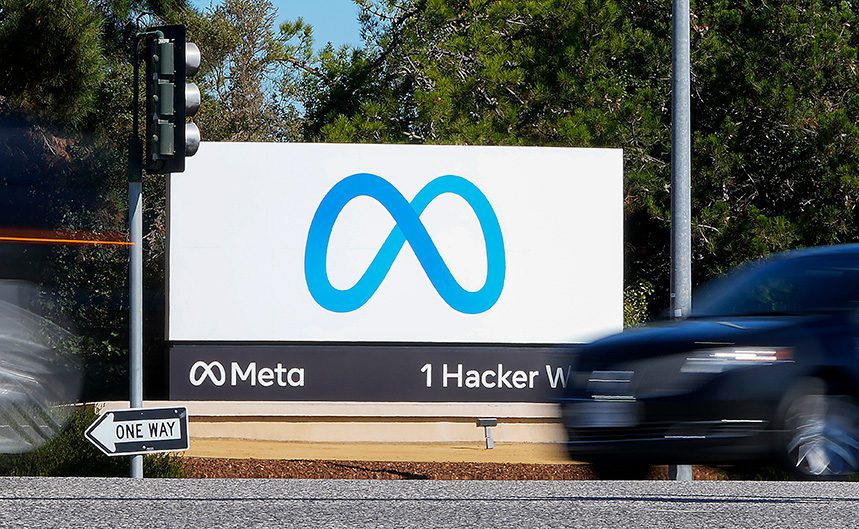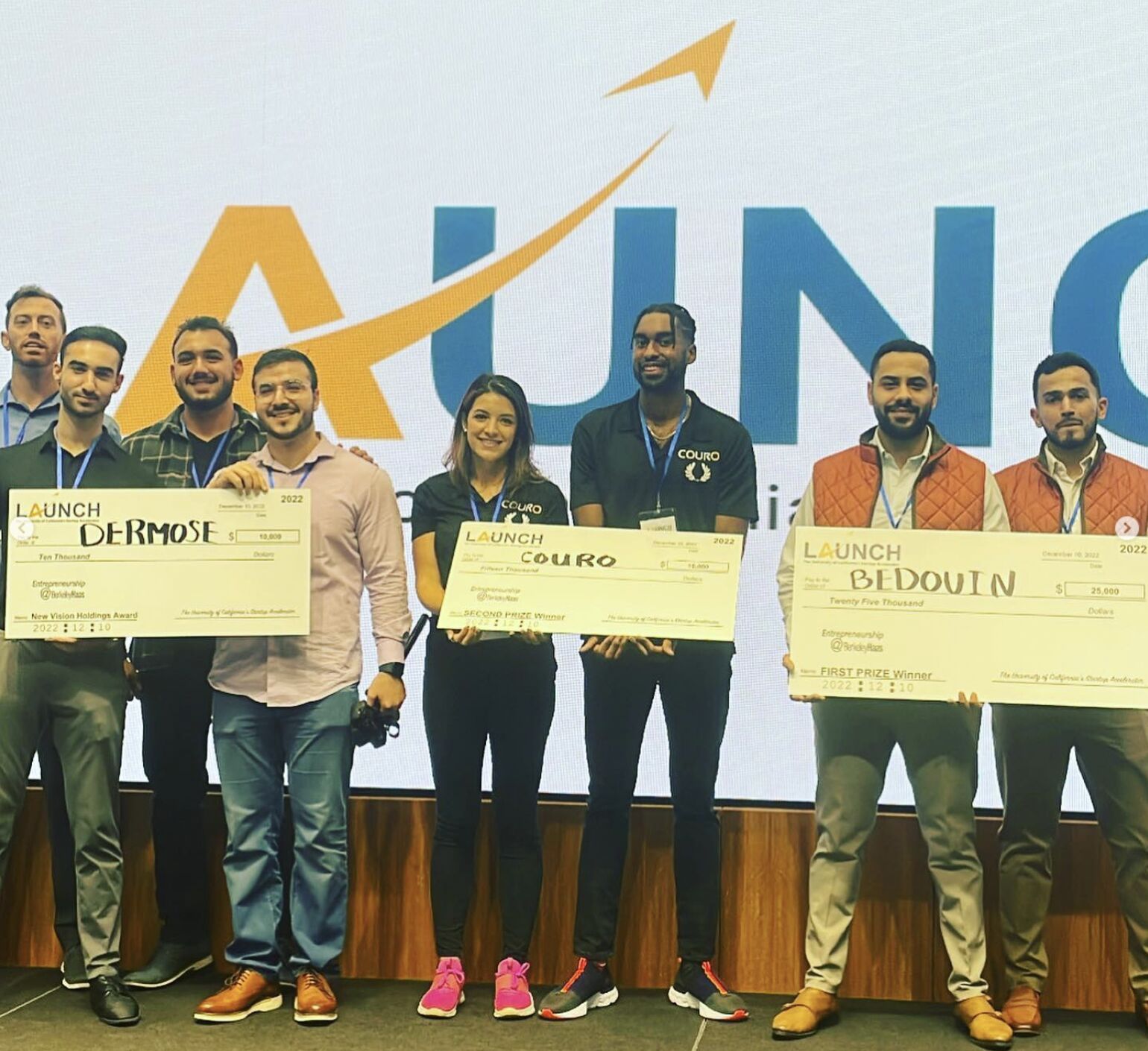
While tech employment remains strong, a wave of layoffs is shaking up the industry. According to the tracking site layoffs.fyi, about 137,000 people have lost their jobs since layoffs started ticking up in May.
To find out more about what is driving this shakeup, we spoke with Saikat Chaudhuri, faculty director of the Management, Entrepreneurship, & Technology (MET) Program and of the Berkeley Haas Entrepreneurship Hub. Chaudhuri, an expert on corporate growth and innovation, mergers and acquisitions, outsourcing, and technological disruption, says the upheaval offers the opportunity for a reset and a chance to pursue growth in emerging areas.
The economy and labor markets are going strong. So why are so many tech companies laying off workers?
Many people are confounding two different things. We should not mix up the events specific to the tech industry with all the other issues that are going on in the broader economy due to the challenges of macroeconomic shocks, like Russia’s war on Ukraine, the aftereffects of the pandemic including supply chain problems, and the general inflationary pressures. The technology industry is also affected by those events, but there are additionally more fundamental factors at play.
“I am not worried about the jobs coming back. What we are seeing are structural changes. The jobs will be shifting, and will grow in up-and-coming areas.”
What’s happening in the tech industry is really a natural shakeout after over a decade of phenomenal growth. It is not unlike when the dotcom bubble burst in 2001. The sector was overheated and it could not continue as it had. The same is true now, as many startup and unicorn valuations skyrocketed over the last years, especially because the pandemic accelerated the growth to record levels as the deployment of technology and digital transformation became necessary everywhere. On the bright side, it’s actually not all bad. While I recognize that layoffs are painful for many people right now, the industry as a whole needs this adjustment to bring us to a path of more sustainable economic growth in tech. Because what was happening, especially with hiring over the last few years, was just completely unrealistic.

How did we get here?
During the pandemic, we went more digital. People worked remotely and they could work from anywhere—Hawaii, the countryside, anywhere. Tech became a big factor as the economy shifted entirely online: online retail, online banking, online instruction, online meetings, online therapy. It brought significant disruption to all industries.
We need to keep in mind that the pandemic was a different kind of economic crisis. Usually in an economic crisis, everybody loses, but that didn’t happen here. Some industries actually gained significantly, especially most of the technology sectors. The growth rate that they experienced, whether hardware, software, e-commerce, healthcare apps, fintech, crypto—you name it—was completely unsustainable. Just take a look at tech hiring last year: Tech job postings hit their peak in March 2022 and have been declining sharply since. We hit the point where the trend reverses. It was going to happen, either now or a year or two from now. It coincides with what’s going on in the overall economy and world politics, leading to a perfect storm.
“Once that first domino falls, it is easy for others to follow.”
This situation also poses a great excuse for employers. They say: A recession is coming. I will have to let people go.” Once that first domino falls, it is easy for others to follow.
Are you saying there was an inflation of the workforce inside the tech industry?
Yes. The reason for this is very simple: You don’t get penalized for growing your workforce while the sector is growing so fast. Everybody knows it will have to stop at some point, but there’s no penalty for riding the wave.
In fact, there’s a loss for your firm if you don’t ride the growth. If you said, “We should be more prudent because some sort of adjustment is going to happen,” there’d be no gain and you’d be losing out on the potential benefits—profits, funding, talent. Because when the correction happens, you can simply lay people off by the thousands. Two years later, the same people who got laid off will come back to the industry (whether at the same kinds of firms or new areas that emerge), and the same VCs will invest. There are no consequences for these actions. That’s just the way of Silicon Valley and the tech world, as they go through cycles.

Is this correction just a tightening of the belt, or is the industry reorganizing itself to make room for a new wave of technologies that require new skills or a reallocation of resources?
There will be some reorganization happening, because some areas are growing faster than others. For example, Amazon decided that not all of its devices are doing so well. Companies have been carrying losses in some areas for a while. But it didn’t matter because there was so much growth overall, and they didn’t want to miss out on that wave. It is not unlike the dotcom bubble, where for instance network equipment companies were investing in an array of optical networking products that never properly worked, because regular routers and switches were minting money.
“A re-evaluation of talent needs will also play a role.”
Moreover, re-evaluation of talent needs will also play a role. I’ve been puzzled for a while about all the anxiety surrounding the shortage of software developers, and the salaries they were being offered in the mad scramble to secure such talent. So much basic programming work has become well-defined, codified, and routine that those skills can be learned at scale by a wider base of employees. If you think about it, thousands of software developers, even at companies like Microsoft and Google, are engaged to implement enhancements to products such as adjusting fonts or updating visuals or adding simple features—not product design or creation of new functionality. Those jobs don’t require computer science graduates, as IBM realized five years ago, when they began hiring non-college graduates with programming experience, at that time out of necessity.
In fact, there are tools now that can automate basic code writing, which are already being deployed. It won’t stop there, because we now also have algorithms which can do many sophisticated tasks; just look at Open AI’s ChatGPT, which is writing essays, poems, lecture notes, speeches, and other creative pieces at the click of a button!
Why now? Is there anything in particular that started this domino effect this year?
Now, with increased scrutiny from investors and others who look at a firm’s financial viability, this overstaffing approach is getting reined in. There have been excesses in view of rosy projections and seemingly limitless valuations. Now the bubble has popped, as it does in every tech cycle, and it’s been a great opportunity (and excuse) for firms to make adjustments, tighten their belts, and reduce their workforce.

Where do you see opportunities?
The next wave of growth will come from emerging sectors, like cleantech and green tech, new materials, breakthroughs in the life sciences, and novel products and services resulting from the maturation of general purpose technologies like AI. Just like the dotcom era was about the internet and all that it spawned—cloud services, big data, the internet of things, and other advances in information technology—there will be a wave of new technologies that will disrupt a lot of different sectors.
In many industries, the disruption has just begun and exciting new transformations are taking place that’ll unfold over the next decade—whether in education, healthcare, finance, automobiles, or aerospace, just to name a few. I am not worried about the jobs coming back. What we are seeing are structural changes. The jobs will be shifting, and will grow in up-and-coming areas.
“If I could give one piece of advice, it’s this: Don’t get sidetracked by group think and FOMO. To become a leader, you’ll need to be comfortable charting new paths and challenging conventional approaches.”
What does that mean for the students at Haas, and those considering an MBA?
For our own graduates, it would be healthy to see this as an opportunity. The most entrepreneurial people are the ones who look at these situations and say, “Change is good, and uncertainty has two sides. It’s what creates the opportunity for new things.”
Instead of defining your career in terms of a particular job at a particular company, you could think about which problem you want to solve. That is where you will find the opportunity to lead and to make a real impact.
It’s great to aspire to work your way up to an executive job at a large firm, and many of our graduates will do that and be very successful. Others will go against the grain. They will be the ones we hear about, because they actually change how Goldman Sachs works or McKinsey works or Google works for the next era. And of course there will be the entrepreneurs who will pursue startups that will redefine entire industries.
Take Stuart Bernstein, BS 86, former Goldman Sachs managing director and partner who shook up investment banking with his passion for clean energy and the environment. A true leader by definition changes things. That’s why we pay attention to them and learn from them.
A lot of our students come in wanting to make an impact early in their careers. What does it take to get there?
If I could give one piece of advice, it’s this: Don’t get sidetracked by group think and FOMO. To become a leader, you’ll need to be comfortable charting new paths and challenging conventional approaches. Leaders have confidence, without attitude—confidence in their vision and in their ability to make it happen, and the humility to learn and acknowledge challenges and risks.
The good news is, you don’t have to be born with it. An MBA program like Berkeley’s gives you the opportunity to develop that kind of confidence. You can train yourself to see the opportunity in ambiguity, embrace serendipity, and take intelligent risks.
Along the way you also learn key the business skills—finance, marketing, management, operations, and so forth—that you will need as a leader. All that will help you develop this vision for your path to make an impact, and the confidence and network to make it happen.

What opportunities are there at Haas and Berkeley to get ahead of the next wave?
As part of our strategic priorities, we are building a new entrepreneurship hub at Haas that will be a game changer for our students and students across Berkeley. It will draw people from all over the campus. The great thing about Berkeley is that it has so many top-rated departments, and we will be able to bring them to one place to talk to each other and collaborate. So many of our Haas signature programs are about this kind of cross-pollination. Take Cleantech to Market’s partnership with the Lawrence Berkeley National Lab, or the Berkeley Skydeck accelerator, or the dual degree programs we have with Public Health, Engineering, Law, and that we are developing with the Rausser College of Natural Resources.
The most pressing problems of global society today require interdisciplinary perspectives. The hub we are developing will not only allow diverse people to connect, but it will provide them with the space and resources to create community, build their ventures, and be discovered by investors. What is novel is that we will not only support those who have a good sense of the entrepreneurial path, but also those who simply would like to be exposed to what it’s all about—the “entrepre-curious,” as we call them. And anyone from around the university will be able to drop in to simply ask an expert for guidance on how to navigate the vast innovation and entrepreneurship ecosystem at Berkeley based on what they need.
“While the tech industry is doing a reset, it may be a great time for you to do a reset as well.”
What’s your big-picture advice?
Silicon Valley is our backyard. While the tech industry is doing a reset, it may be a great time for you to do a reset as well. Beef up your skills, develop your leadership potential, build your network, and embrace your inner entrepreneur.